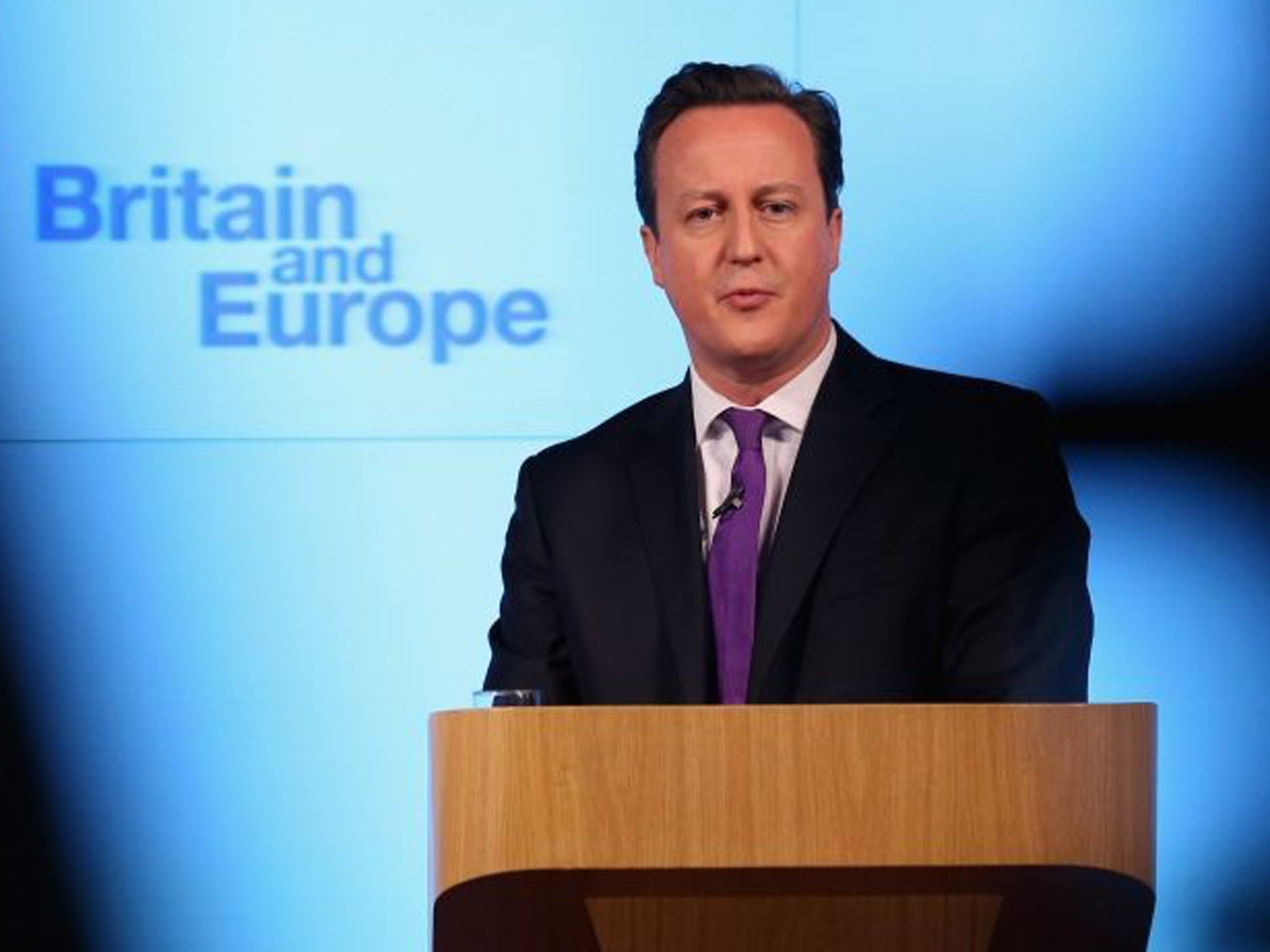David Cameron's EU speech has not improved election hopes, warns Lord Ashcroft

Your support helps us to tell the story
From reproductive rights to climate change to Big Tech, The Independent is on the ground when the story is developing. Whether it's investigating the financials of Elon Musk's pro-Trump PAC or producing our latest documentary, 'The A Word', which shines a light on the American women fighting for reproductive rights, we know how important it is to parse out the facts from the messaging.
At such a critical moment in US history, we need reporters on the ground. Your donation allows us to keep sending journalists to speak to both sides of the story.
The Independent is trusted by Americans across the entire political spectrum. And unlike many other quality news outlets, we choose not to lock Americans out of our reporting and analysis with paywalls. We believe quality journalism should be available to everyone, paid for by those who can afford it.
Your support makes all the difference.David Cameron's high-profile speech on Europe has cheered Conservative supporters, but done little to improve the party's chances of success at the next general election, according to polling by major Tory donor Lord Ashcroft.
The peer, who until 2010 was Conservative deputy chairman, said that Mr Cameron's promise of an in/out referendum following renegotiation of the UK's EU membership after the 2015 election “has not unleashed a desire for an overall Conservative majority”.
And the upsurge in debate about the EU in advance of the high-profile speech appears to have bolstered pro-European sentiments, with numbers saying they feel positive about British membership increasing from 18% to 22% and those thinking the UK would be better off out falling from 34% to 26%.
Lord Ashcroft's poll - in common with most of those taken since last week's speech - showed a small increase in support for Tories, but left Labour in the lead on 38%, against the Conservatives' 33% and Liberal Democrats' 11%. The avowedly pro-withdrawal UK Independence Party was on 9%.
However, Lord Ashcroft said that the change largely resulted from people who voted Tory in 2010 saying they would be more likely to do so again, as well as existing Conservative supporters becoming more likely to turn out and vote.
Writing on the ConservativeHome website, the Tory peer said: “If anyone expected an immediate leap in the Conservative Party's popularity, the evidence should by now have disabused them of the notion.
”The speech, and more importantly the policy it articulated, has made Tories feel better about being Tories. This is not to be sneezed at - but let's not confuse it with having changed anybody's mind.“
Mr Cameron enjoyed a small increase in his leadership ratings in the poll, but the Conservatives were no more likely to be seen as united or having clear plans to deal with Britain's problems.
While the coalition remained more trusted to run the economy than Labour, Tory leads on traditionally strong policy areas like welfare reform and immigration had narrowed.
”Not surprisingly, given all this, the promise of an EU referendum has not unleashed a desire for an overall Conservative majority,“ said Lord Ashcroft.
”Just under a third (32%) of voters told us last weekend that this would be their preferred outcome of the next election - a proportion unchanged since last November.
“A Labour government remains the most popular choice, with 38%; 17% would rather have a Labour-Lib Dem coalition. Another round of what we have now is the least popular choice, with 13%.”
He warned the party that it must not give voters the impression that it is obsessed with Europe.
“In debating the question in the coming years we must remember that there is only so much oxygen in the room,” said Lord Ashcroft.
“Most people do not pay much attention to politics at all; when they do, let's make sure they hear something that changes their view of the Conservative Party, not just of Europe.”
:: Some 1,008 adults were interviewed by phone for Lord Ashcroft's poll between January 25 and 27.
PA
Join our commenting forum
Join thought-provoking conversations, follow other Independent readers and see their replies
Comments